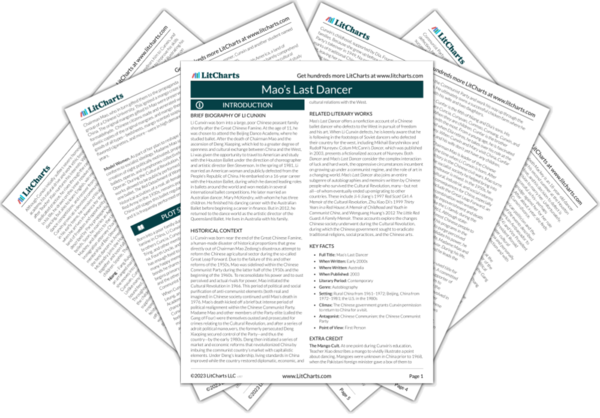Although the Chinese officials eventually concede and release Cunxin to stay in America, they still exercise control over him by leveraging the wellbeing of his family and of his friends in Beijing. It’s not quite the same as the coercion and control he’d face if he returned himself, but it does suggest that, despite the material improvements in living standards under Deng Xiaoping, China still has a long way to go to become a free country that creates the circumstances its citizens need to flourish. Cunxin reflects on this fact when he considers how little freedom even the more privileged and powerful members of Chinese society truly have. They, too, are tools for the Party to use to meet its own objectives.


